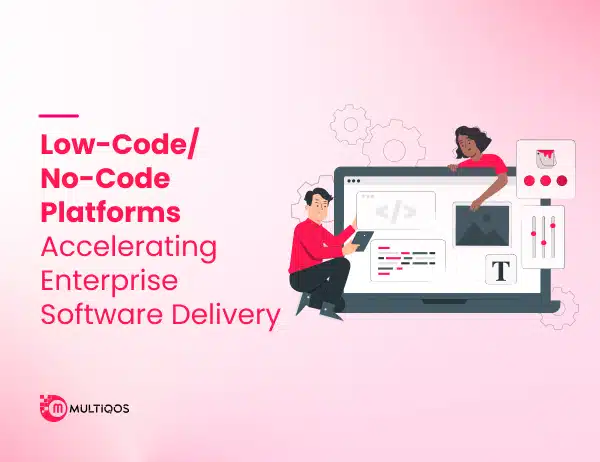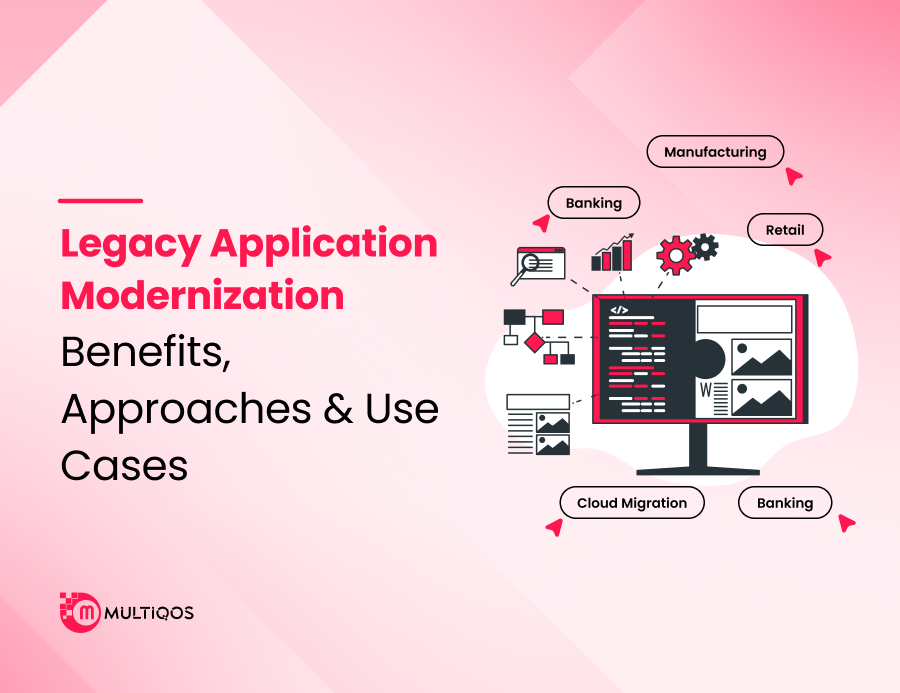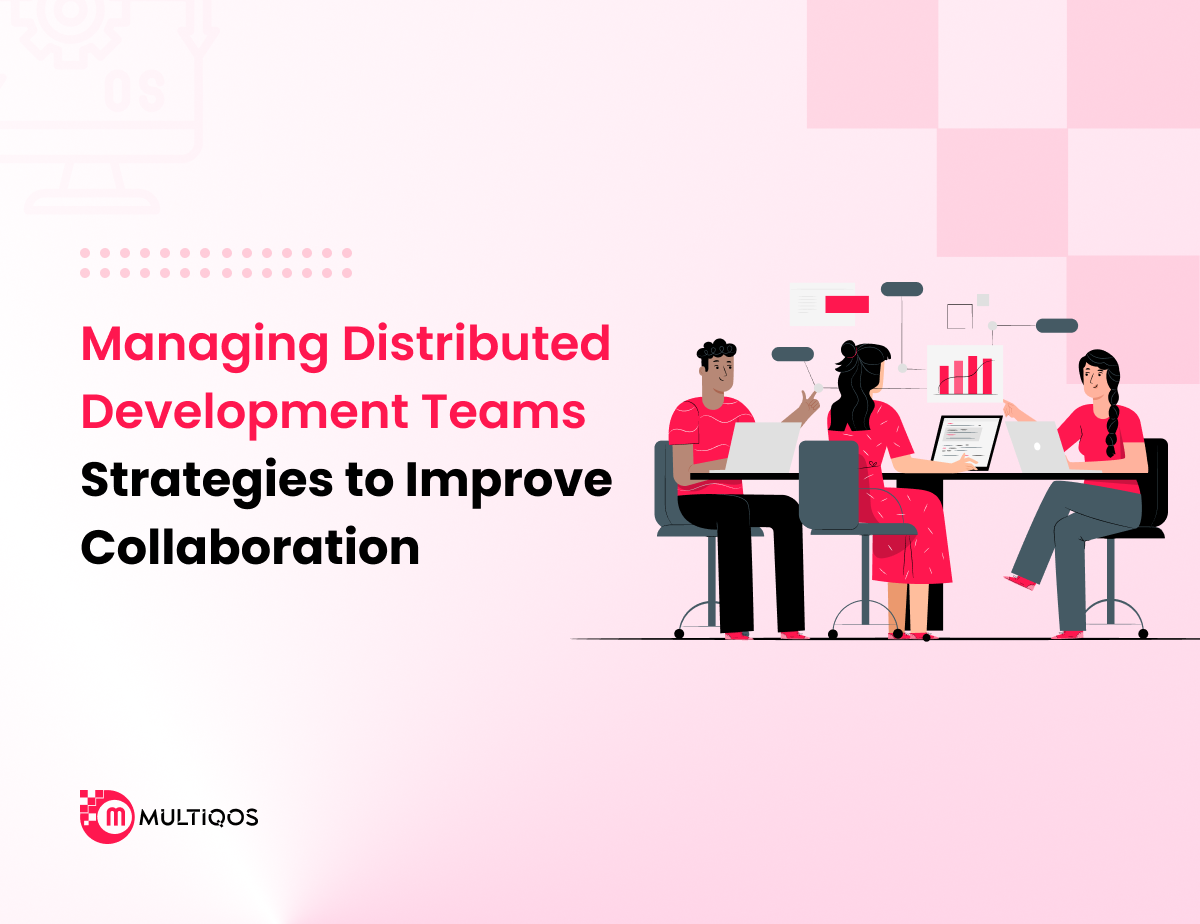Low-Code/No-Code Platforms: Accelerating Enterprise Software Delivery

Summary:
Enterprise software development demands speed, agility, and efficiency. This blog explores how low-code enterprise software and No-Code Development 2025 trends are revolutionizing the way businesses build and deploy applications.
By enabling both developers and non-technical users to create powerful solutions with minimal coding, these platforms significantly reduce development time and cost. From real-world use cases to platform comparisons and strategic benefits, this guide helps enterprises understand how to adopt and scale low-code/no-code tools effectively for long-term success.
Introduction
Businesses in every nook and cranny of the corporate world seem to be in a constant race, having to tirelessly innovate, cut costs as much as possible, and become more agile in the face of ever-evolving market conditions. The invention of no-code and low-code application development platforms is revolutionary because development can be done much faster and at a company-wide level since both technical and non-technical staff can create applications through point-and-click GUI interfaces.
According to Research, the expected value of the worldwide low-code/no-code platforms market is expected to hit USD 65 billion by 2027, these platforms are certainly experiencing growth. These platforms simplify traditional coding processes, enhance collaboration, and greatly reduce the time required for enterprise software development. The leaders of a business strive to strike a balance between productivity and competitiveness, then quickly understand that the tools that drive entire organizational digital transformation and operational efficiency are low-code/no-code systems.
What Are Low-Code and No-Code Platforms?
Low-code/no-code platforms are specialized visual development tools that facilitate rapid app development by allowing app development through the use of drag-and-drop units and ready-made templates. While these platforms empower faster prototyping, many businesses still hire software developers to extend functionality, integrate advanced features, and ensure long-term scalability. Such platforms permit the creation of graphs, user interactions, workflows, data models, and system semantics far beyond traditional programming languages through complex logic.
The primary change is noted in the amount of technical knowledge needed:
- Low-code platforms are for developers’ use and provide graphical interfaces for simpler tasks. More intricate logic can still be implemented through custom coding.
- No-code platforms sit on the opposite end of the spectrum and target business professionals with very limited technical skills, empowering them to create operational apps without writing a single line of code.
Such platforms are changing the processes of enterprise software development, cutting down the time, cost, and deep expertise needed to deploy sturdy applications.
Popular Low-Code and No-Code Platforms
Here’s a list of popular platforms and their primary focus:
Low-Code Platforms
- Outsystems – An enterprise-level system offering complete stack assistance with great speed in development and scalability.
- Mendix – Excellent for collaborative development across web, mobile, and IoT applications.
- Microsoft Power Apps – Works well with business applications because it tightly integrates with Microsoft 365 and Dynamics, useful for internal projects.
- Appian – Good reputation for process automation and robust compliance capabilities.
- Salesforce Lightning Platform – Useful for developing applications within the Salesforce CRM framework.
No-Code Platforms
- Bubble – A popular tool for responsive web apps and workflows, ideal for web application development services.
- Glide – Instantly transforms spreadsheets into mobile applications, which is great for internal applications.
- Airtable Interfaces – Merges rapid app development and management of relational databases.
- Thunkable – A user-friendly mobile app maker with live demo features, perfect for mobile app development services.
- Adalo – Best suited for new businesses wanting to develop basic mobile and web applications fast.
Key Benefits for Enterprise Software Delivery
The advantages of low-code/no-code platforms solve the issues created by the development runway of traditional software development:
- Speed to Market: Delivery time can be drastically reduced from months to mere weeks or days due to visual workflows and reusable components.
- Cost Reduction: Lower development time translates to lower labor expenses, and ROI is achieved in just a fraction of the anticipated time.
- Enhanced Collaboration: Business and IT departments can collaborate and adjust application features as per the requirements of the business in real-time.
- Easier Maintenance and Iteration: Applications that are simple or require enhancement can be improved faster, thus driving simpler, encouraging, and constant iterative change.
These advantages allow enterprises to control their budgets and timelines while enabling more rapid app development.
Real-World Use Cases
The application of low-code/no-code platforms can be employed in multiple enterprise functions:
- Workflow Automation: Turn onboarding, approvals, and document management into automation.
- Internal Dashboards: Develop systems that help HR, finance, and operational departments track organizational KPIs and manage resources effectively.
- Customer Portals: Construct self-service portals for clients or partners that have responsive access with customizable security privileges and specific role-defined permissions.
- Legacy Modernization: Update obsolete workflows and interfaces while preserving the existing functionality by avoiding complete code rewrites.
Such platforms empower businesses to customize and automate processes according to their needs, fully addressing evolving business demands.
In Summary
The evolving development landscape is changing rapidly due to low-code and no-code systems, which allow for faster, innovative solutions. Almost anyone with basic technical skills can improve productivity for various organizations by utilizing low-code enterprise software development, especially when combined with AI ML development services to enhance functionality and intelligence.
In such a case, working with a trustworthy software development company can be beneficial as they have the expertise to integrate powerful and adaptable systems optimized for the defined business goals and stay competitive in the digital landscape. Building such systems will not only provide agility and flexibility but also sustain a competitive advantage.
FAQs
Low-code platforms assist developers with coding by hand only on a minimal basis. This allows the development cycle to be accelerated. Unlike no-code platforms, which cater to non-technical users with a graphical interface for rapid app development, low-code platforms expect users to have some programming skills to develop applications.
Just like many low-code business platforms, modern enterprise-grade tools also offer customizable, secure, enterprise-capable applications. Analytics, API integrations, data governance, and operations management integration with RBAC are also included.
Trust in websites utilizing enterprise-grade security measures like encryption, identification, HIPAA, and GDPR is contingent on having robust cybersecurity systems in place, which include protecting organizational and personal data. Additional security and governance functionalities are implemented when partnering with a specialized software development company.
All users, irrespective of their skills or experiences, can navigate the aforementioned platforms as discussed; these are no-code tools available to business analysts and project managers with no development background. In contrast, professional developers tend to prefer low-code solutions as such tools allow them to pay attention to details while simultaneously accelerating delivery timelines.
Given all their capabilities, these platforms may be less effective when dealing with deeply customized or resource-intensive applications. Concerns about vendor lock-in and limited design freedom with particular structural specification needs also pose problems.
Get In Touch






